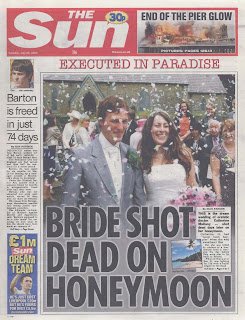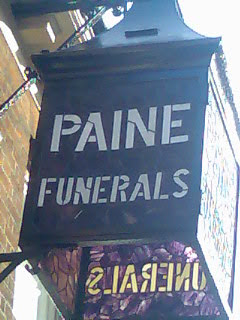I'm sorry if this is slightly off-topic, but civil liberties are a particular concern of mine - as I hope they are for most journalists.
I catch the train to work each day, and this morning when I reached my local, suburban train station (railway station, if you prefer), I was surprised to see a number of police officers present, searching the bags of some of the people waiting for a train. All of the people they had stopped were either schoolgirls or young female commuters.
I didn't speak to any of the police officers - and none of them stopped me - but I did notice that at least one of them was carrying a bundle of leaflets entitled 'Terrorism Act' and subtitled 'Section 44'. I meant to Google this when I got to work but promptly forgot about it until I received an email from my girfriend saying that she had been stopped and searched at the same train station earlier that morning (we catch different trains).
I then did Google 'Terrorism Act' and 'Section 44', which took me to
a page on the Liberty website explaining that:
Section 44 of the Terrorism Act 2000 allows the police to stop and search anyone in a specific area.
Before Section 44, the police could only stop and search individuals if they had 'reasonable grounds' and certain criteria were met. That is no longer necessary, and we have seen Section 44 powers used against anti-war, anti-weapons and anti-capitalist protestors.
The power to stop and search under anti-terrorism powers should only be used when there is evidence of a specific terrorist threat.
I cannot be certain that there wasn't a "specific terrorist threat" in my London suburb this morning, but I find the notion surprising. And if there was a specific terrorist threat, the actions of the police would suggest that it was posed by female commuters and schoolgirls as young as (I guess) 13 and 14.
I find it much more likely that the police were searching perhaps for
knives and other weapons - teenagers carrying knives being
the media scare story of the moment here in the UK. If so (and I have no real evidence either way), it would be an abuse of the Terrorism Act. What do you think?
Update 02/04/2009: Gez from Grammar Blog was stopped and searched at Clapham Junction under Section 44 recently. I recommend his blog post regarding
A response from Wandsworth Police.
Update 11/04/2009: And here's a photo of a policeman stopping someone at my local station under Section 44 on another occasion:





















